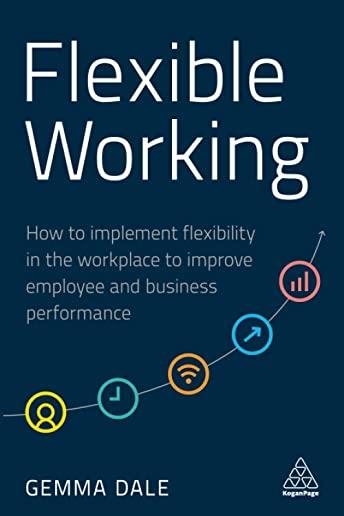
Dale, Gemma
product information
description
5
Flexible working is now a key concern for many employees. It spans genders, ages and family circumstances, with 37% of millennials declining a job offer if working flexibly isn't an option and 78% of employees over 50 wanting more flexible hours.
Flexible Working is a practical guide for HR practitioners showing how to develop an effective flexible working strategy to meet the needs of employees and the needs of the business. This book explains how to develop effective flexibility policies and processes as well as how to communicate and train line managers on these practices. It also includes advice on how to overcome barriers to flexible working, dispels common myths and offers guidance on the different forms of flexible working available to organizations. Flexible Working shows that working practices outside the standard 9-5, five-days-a-week in the office can benefit a company. It drives employee engagement and performance, reduces costs and workplace stress and improves talent acquisition from a more diverse talent pool. It also explains how a proactive flexible working strategy can have sustainability benefits and reduce a company's carbon footprint. Including case studies from organizations such as Zurich Insurance, and supported by rigorous analysis of flexible working data, this is essential reading for all HR professionals.member goods
No member items were found under this heading.
listens & views

FLUTE WORKS / HARP MUSIC
by BERLIOZ / FAURE / DEBOST / CHRISTIANSEN
COMPACT DISCout of stock
$19.99

Return Policy
All sales are final
Shipping
No special shipping considerations available.
Shipping fees determined at checkout.





